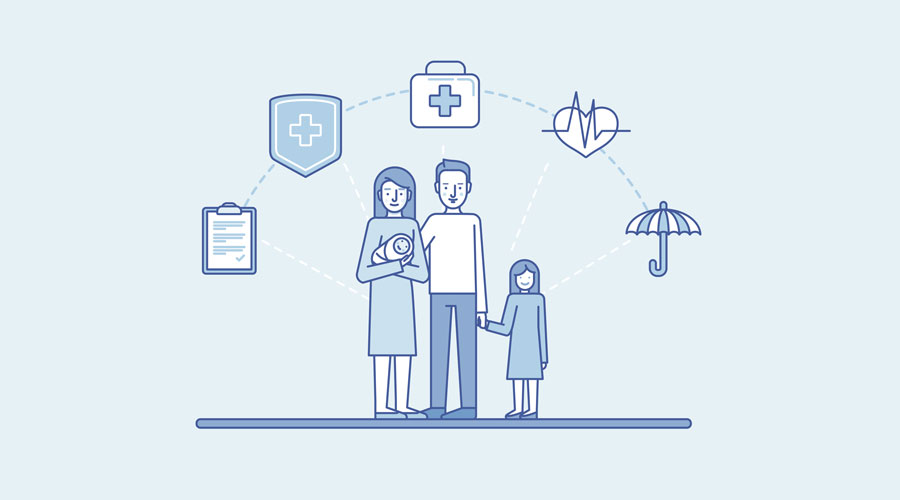If you want to become an independent pharmacy owner, it’s not as simple as hanging out a shingle and opening up shop.
The first major decision you’ll have to make is whether to start a brand new pharmacy location or purchase an existing independent pharmacy. While you may have always imagined starting from scratch, purchasing an existing location can come with its own perks.
Learn about the benefits — and challenges — of each path to becoming a pharmacy owner.
What to consider before buying a pharmacy
Purchasing an existing pharmacy means you can put the hardest parts of starting a business behind you, but you may have to make some compromises.
Easier to get financing
Whether you are buying an existing pharmacy or starting one from scratch, you’ll probably need to secure a small business loan. While buying an existing pharmacy is often more expensive than starting a new location, it can be easier to secure financing.
Small business loans are notoriously difficult to secure, but when you buy an existing business, you have the pharmacy’s track record to make your case. You can demonstrate past financial successes to help you convince a bank that you will be successful in the future (and be able to pay back your loan).
Inherited connections
When you buy an existing pharmacy, you get to skip many of the early growing pains of a new business. You will inherit a base of patients who already get their prescriptions filled there, so you don’t have to worry about building your script volume.
You will already have name recognition in your community, and you can build on that branding instead of having to start from scratch.
You’ll probably also inherit a group of employees with plenty of institutional knowledge to keep the pharmacy running smoothly during the transition.
Inherited problems
On the other side of the coin, when you purchase an existing pharmacy, you also inherit any problems it might have. If the pharmacy isn’t profitable, it will become your responsibility to dig the finances out of a hole. If the pharmacy has a bad reputation in the community, it’s now your job to repair it.
You can also run into problems when you start to make changes, because patients and staff members could cling to the old ways — even if the old ways are inefficient.
Questions to ask before purchasing an existing pharmacy
Before you pull the trigger on your purchase, these questions can help you do your due diligence.
Why are the owners selling?
If the owner is selling the pharmacy because it’s struggling financially, you’ll be taking on a much different challenge than if you buy from an owner who wants to sell a beloved community pharmacy before retiring.
What financial documents are available to me?
The current owners will probably show you their tax documents and accounting records, but you should dig deeper to root out potential problems. Ask for their dispensing records for the last few years to identify trends in prescription volume, and look at their records regarding OTC sales. These documents will give you a fuller picture of the pharmacy’s strengths and potential issues.
Also find out what kind of contracts they have signed and how long they are committed. If they’ve locked themselves into an unfavorable deal with a wholesaler, you want to know that before you buy.
Do you understand the market?
When you buy a pharmacy, you’re also buying into the community. Learn as much as you can about the area and what community members need from their independent pharmacy before you commit to making a purchase. If you want to bring the business practices of a high-traffic urban pharmacy to a rural location, you could be setting yourself up for failure.
What to consider when starting a new pharmacy
A brand new pharmacy can be full of potential — but it also comes with challenges of its own.
Scalable growth
When starting your own pharmacy, you can create a business that fits your budget and abilities. You can start small and grow your offerings as your pharmacy becomes profitable.
If you buy an existing pharmacy location, you may be committing to a huge script count and an unwieldy menu of services. When you start a new location, you can tailor the services to your capabilities at the moment.
Room for passion
If you are full of passion and new ideas, starting a new pharmacy might be a good choice. Purchasing an existing pharmacy means continuing someone else’s legacy, but starting a new pharmacy gives you the opportunity to really leave your mark on your community.
As a person with big ideas, you may have an easier time starting with a brand new location than trying to mold an existing location into the independent pharmacy of your dreams.
Elbow grease required
The main downside of starting a pharmacy from scratch is that you have to do absolutely everything from the ground up. From furnishing your space, establishing contracts, hiring your team, and coming up with a marketing plan, you can’t expect to work 9 a.m. to 5 p.m. and clock out.
You’ll have to put in a lot of extra hours at the start — and on top of that, you probably won’t be making much money. On average, it takes small businesses 18 to 24 months to become profitable, and around one-third of all small businesses fail before they reach two years. To start a new pharmacy, you’ll have to be prepared for some lean times.
Questions to ask before starting a new pharmacy
Before you get your pharmacy up and running, use these questions to ensure you’re ready for the commitment.
Do I have a vision?
Dig into why you want to start a pharmacy and how your pharmacy will be different from the community pharmacy for sale one town over. As an exercise, write a practice vision statement for your imaginary new pharmacy. If you don’t have a clear vision for what will make your community pharmacy different, you could be better picking up where another community pharmacist left off and purchasing an existing location.
Who are my resources?
Starting a pharmacy from scratch is a huge endeavor, and you’re going to need mentors and resources to help you through the process. Reach out to pharmacy owner colleagues you’ve met through continuing education events and learn about the mistakes they made when they were starting out so you can avoid the same pitfalls.
Also take advantage of industry resources, like the NCPA’s Pharmacy Ownership Workshop, a two-day event that takes place three times a year. This will give you critical industry insight on the ins and outs of running your own pharmacy location.
A Member-Owned Company Serving Independent Pharmacies
PBA Health is dedicated to helping independent pharmacies reach their full potential on the buy-side of their business. Founded and owned by pharmacists, PBA Health serves independent pharmacies with group purchasing services, wholesaler contract negotiations, proprietary purchasing tools, and more.
An HDA member, PBA Health operates its own NABP-accredited secondary wholesaler with more than 6,000 SKUs, including brands, generics, narcotics CII-CV, cold-storage products, and over-the-counter (OTC) products — offering the lowest prices in the secondary market.












